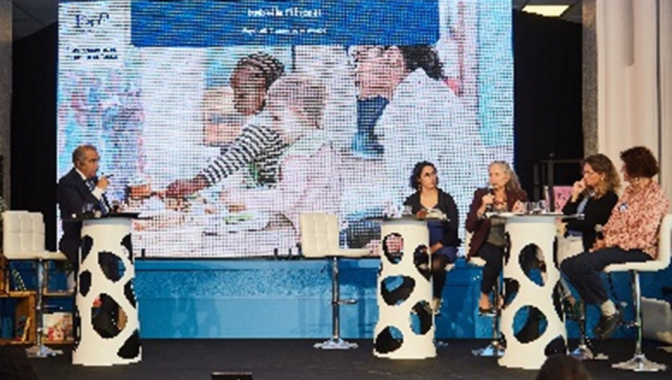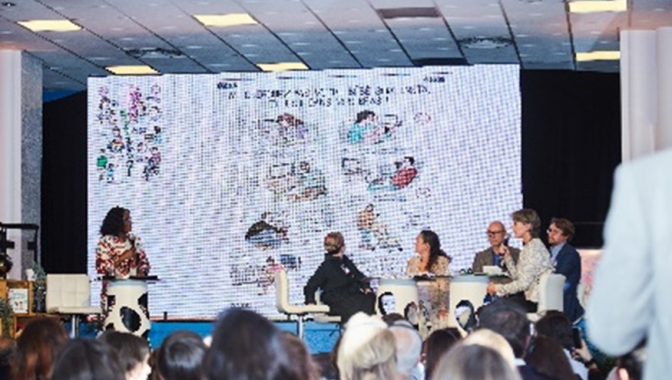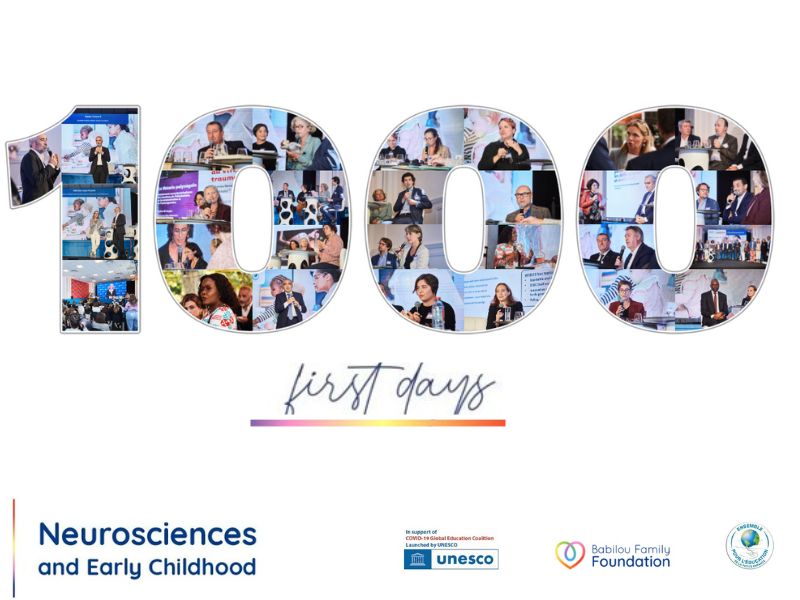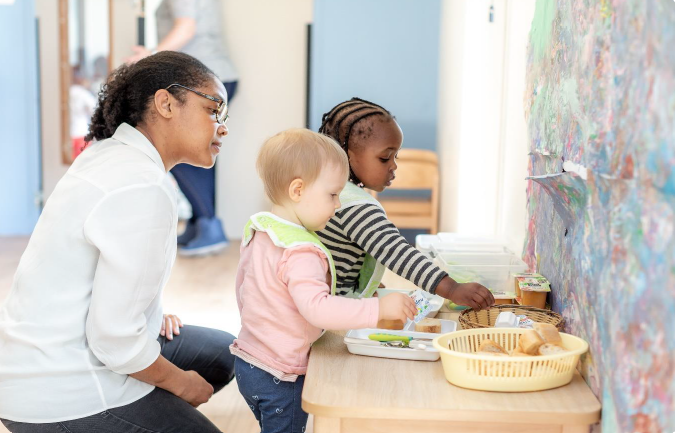WHAT DETERMING ROLE DOES NEUROSCIENCE PLAY IN THE DEVELOPMENT OF 0-3 YEARS OLD?
-
600 participants online and in person in Marseille
-
20 International speakers
-
3 Round tables
-
1 Plenary Session
Did you know:
-
The average screen time for children under 2 years old is 2 hours per day
-
10% of school droupouts are linked to screens
-
5% of working-class children have access to day care cneters while 20% of children from more affluent classes have access to day care centers
-
79% of early childhood professionals say they would like to receive ongoing training on child development
-
At the end of elementary school in France, about 20% of children do not master reading
Round Tables Review

The importance of the environment on brain development
Dr. Catherine Verney, a specialist in the anatomy and chemistry of the brain, spoke about the influence of intense and early toxic stress: "the baby reacts in mirror to our behaviors and is eminently social. Isabelle Filliozat, a psychotherapist specializing in emotions, emphasized the influence of trauma on the development of hormones and certain areas of the brain, a subject that is still less known by parents and professionals. She thus highlighted the crucial importance of supporting and training professionals to provide an appropriate response to these issues. Charlotte Decroix, a doctoral student at the University of Bordeaux, emphasized the importance of supporting professionals in their daily practices in order to sustain the psychosocial skills of young children, the foundation of global development. She illustrated her point with the first social health research-action for early childhood professionals "Accompagne-moi...! Finally, Claire Malenfant-Illiaquer, Director of Sustainable Education at Babilou Family, reminded the audience of the need to create a serene environment, guaranteeing emotional.

Reducing educational inequalities among children
Nathalie Casso-Vicarini, member of the 1000 Days Commission and general delegate of the association "Ensemble pour l'Éducation de la Petite Enfance", drew a parallel between the village spirit and her vision of early childhood, where everyone is encouraged to maintain relationships to support the development of young children, but also to best accompany parents. Emmanuelle Deletoille, elected official for Early Childhood and the Family in Arras (Pas de Calais), presented the "Maison des 1000 premiers jours" (House of the first 1,000 days), which allows the same parents in a group to meet, to release their stress, to exchange with a trained facilitator and to relieve their guilt on a daily basis. For Xavier Madelaine, co-chair of the Early Childhood group at the Association des Maires de France (AMF), local authorities are an essential link in the education and protection of young children. In particular, they work to reduce territorial inequalities and promote coherent development in three areas: the social and health environment, the school and educational field, and innovation. Florent de Bodman, director and co-founder of 1001 Mots, shared the genesis of his association and the challenge of facilitating access to day care centers for allophones and one of the solutions to prevent educational difficulties, to awaken children before they enter school. Daphée Deureux-Suin, day care center director, explained the growing importance of digital tools to reduce inequalities, reminding us of the need to continue to create links and to readapt our habits as well as those of the children. Finally, Tove Mogstad Slide, senior advisor at the Norwegian Ministry of Education and Research in the Department of Early Childhood, also presented experiences from Norway, notably on their educational system in terms of paid parental leave, state-regulated and state-funded childcare, play-based and child-centered approach, good leadership, ecological approach, and quality of care and staff management. In particular, she emphasized that well-trained professionals are key to quality, in addition to the importance of putting the professional at the heart of decision-making.

Controlling exposure to screens
Dr. Sylvie Dieu-Osika, a pediatrician and founding member of the Overexposure to Screens collective at Jean Verdier Hospital, has warned about the consequences in terms of sleep, education or attention that abusive exposure to screens causes from a very young age. The screen is not the problem, it is the addiction that comes from it, and the solution proposed by Dr. Sylvie Dieu-Osika is to raise parents' awareness. Vincent Berge, CEO of Crocos GoDigital, highlighted the downward spiral between attention disorders and exposure to screens, responsible for 10% of school dropouts. The solution would be to rely on research (to accompany digital, with 3D objects around digital) while limiting its use in order not to go into excess. Dr. Anne-Lise Ducanda, PMI doctor and co-founder of the collective Overexposure to Screens (CoSE), reminded us of the toxicity of overexposure to screens on the global development of children. Isabel Segovia Ospina, former Vice-Minister of Education of Colombia and founder of Origami Preschools, insisted on the importance of helping parents to make the most of technology without harming children. Finally, Jean Rakovitch, pedagogical director of the Domaine du Possible School, advocated the re-establishment of a physical relationship with knowledge, to fill the gaps caused by the biased apprehension of knowledge by screens.
Neuroscience and Early Childhood: What are the perspectives?
Several of the speakers from the previous roundtables were able to discuss with Yao Ydo, Director of the UNESCO International Bureau of Education, James Cairns, Director of Strategic Commitments and Child Learning at Harvard, Gérard Gazay, Mayor of Aubagne and member of the AMF, Juliette Masson, Deputy Mayor of the 6th and 8th districts of Marseilles, responsible for school affairs and schools, and also a nursery school director, Laurent Choukroun, Managing Director of Synergie Family, Isabelle Filliozat, psychotherapist specializing in emotions, Tove Mogstad Slide, senior advisor to the Norwegian Ministry of Education and Research in the Department of Early Childhood, Xavier Madelaine, co-chairman of the Early Childhood group at the Association of French Mayors (AMF), and Thierry Pech, director of the think tank Terra Nova. The latter encouraged the creation of controlled ecosystems and better valuing of professionals to help children escape social predestination. Finally, Xavier Ouvrard, CEO of Babilou Family and Secretary General of the eponymous foundation, emphasized the importance of giving more resources to PMI and regulators to control the quality of childcare facilities. The importance of synergy between companies and public authorities is also necessary to create new day care centers and install high quality educational practices.

